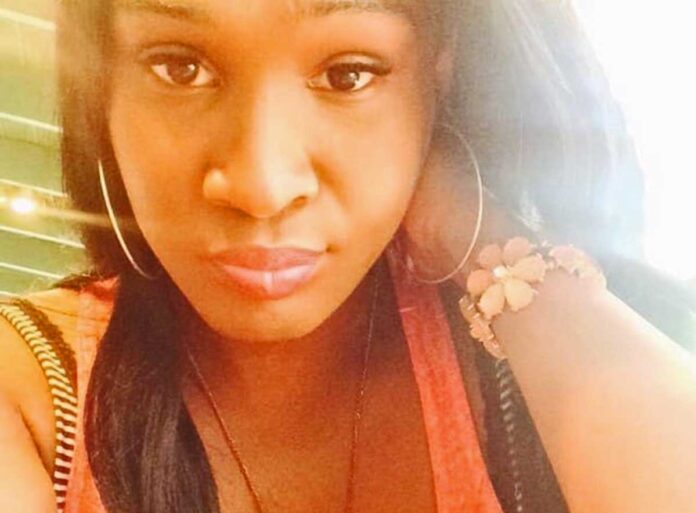Philadelphia police made a swift arrest in the death of 29-year-old Mia Green, a transgender woman of color who was shot and killed in the Belmont area of West Philadelphia on September 28. Abdullah Ibn El-Amin Jaamia was charged for Green’s murder. Police apprehended Jaamia after initially pulling him over for running a stop sign in the vicinity of 41st Street and Westminster Avenue at around 8 a.m.
Green, who was in the car at the time, was taken to Penn Presbyterian Medical Center, where she was pronounced dead from a gunshot wound to the neck, according to multiple news reports. Her death comes three months after the death of Rem’mie Fells this past June.
The Philadelphia Office of LGBT Affairs issued a written statement regarding Green’s death. “While the details around Mia Green’s death are the subject of an ongoing investigation, we know that the loss of yet another trans community member of color is especially painful, no matter the circumstances,” the statement reads in part. “This latest act of violence against a member of our community is a somber reminder of the epidemic of violence against trans individuals. It is a crisis that cannot be allowed to persist any further.”
In an October 1 press conference, Philadelphia District Attorney Larry Krasner, State Sen. Larry Farnese, Deputy Police Commissioner Ben Naish, and local LGBTQ leaders addressed the lack of protections for LGBTQ people.
“It’s tough to watch this happen over and over again,” said Celena Morrison, Philadelphia’s executive director of LGBT affairs.
Pennsylvania’s Hate Crimes Statute does not include LGBTQ people. Republican leaders in the State Senate have refused to let legislation to amend the statute move forward.
Deja Lynn Alvarez, a trans activist and co-chair of the Philly LGBT Police Liaison Committee, said that Philadelphia police were “from start to finish, amazing,” in their handling of Green’s death. Alvarez played a large role in talking to the police and disseminating information to the LGBTQ+ community. In a Facebook post, she thanked Philadelphia Police Department Homicide Unit Captain Jason Smith, Inspector Derrick Wood, Deputy Commissioner Joel Dales, and Sergeant Nicholas Tees.
Jaamia and Green were apparently in a long-term intimate relationship, according to Alvarez. She explained that trans women are frequently murdered by people they’re close to “because of the stigma that’s attached by society to us for being transgender. Everything about society stigmatizes us. We are stigmatized by the church, in school, at home by a lot of our own families. We are talked about and treated like we’re not even human. That same messaging goes out to the people that are intimate with us, that love us, that want to love us, that want to be with us. Now they’ve heard those same messages over and over again, so that’s what leads to having to be behind closed doors so nobody finds out.”
Alvarez also vehemently expressed her anger toward people blaming trans murder victims for their own murders.
“We’re not the reason. Society is the reason and the stigma attached to us is the reason we keep getting murdered,” she said.
Kendall Stephens, another strong voice in the trans and LGBTQ community, underscored the fact that trans women of color are living in fear. Stephens was violently attacked in her home in August. Philadelphia police recently arrested one of her assailants.
“It’s unreal, it’s just making our narratives grimmer than they already are,” she said. “I really believe that we’re starting to lose hope and we are fearing that our murders may be next. As a trans woman of color, my age expectancy is 35. I’m 34. You can’t help as a trans woman but feel this ominous feeling that your days are very well numbered.”
Both Stephens and Alvarez discussed the importance of the trans community coming together and supporting each other in devastating times such as these.
“It’s a good thing we have people like Deja, people like myself who have formed a sisterhood and advocacy to fight against social injustices and these hostile forces that mean to harm us and kill us,” Stephens added.
While Alvarez said that the work that she does through the LGBT Police Liaison Committee is very harrowing, she and her community members have to ensure that police investigations involving the deaths of trans people are carried out properly.
“Six or seven years ago, this young lady would have been murdered in cold blood, no one would have cared, the police wouldn’t have bothered, it would have been reported as a man, or a man in women’s clothing,” Alvarez said. “So the work that we do as a community and the relationships that we build with the city, with the police department are extremely important because visibility means a lot. The more visible we are, the more we can talk about how bad things are, and hopefully it will humanize us and people will see us just like everybody else.”
